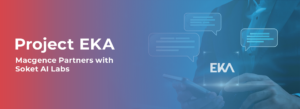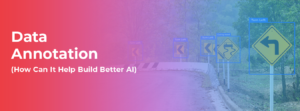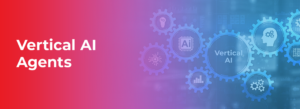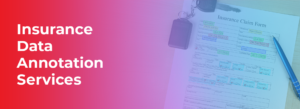Computer Vision in Healthcare: Transforming the Future of Medicine
In the rapidly evolving world of healthcare, technology continues to push the boundaries. It has brought forth innovations that primarily seemed not possible. Well, one such transformative technology that has become the talk of the town and is indeed making waves is computer vision in healthcare. This innovative field, which leverages artificial intelligence (AI) to process and interpret visual data, is revolutionizing how doctors diagnose, treat, and monitor patients. In this article, we intend to deal with the issue of how computer vision in healthcare has gradually come to light as a potential game-changer in the healthcare space.
A Brief Overview of What is Computer Vision in Healthcare.
Artificial intelligence further divides into many other subfields, and computer vision is one crucial subset of AI that allows machines to interpret and analyze images or videos in the same way that humans do. In the healthcare space, researchers particularly apply this technology to medical imaging—such as MRI, X-rays, CT scans, and ultrasounds. This, therefore, enables medical professionals to provide rapid and accurate analysis of visual data. This is done using advanced algorithms and deep learning features of computer vision, which can discern patterns, anomalies or specific areas of interest in an image to better help doctors make accurate diagnoses with greater precision.
Key Applications of Computer Vision in Healthcare:

1. Medical Imaging Diagnosis:
Medical imaging is one of the most prominent areas where computer vision excels and well, it is truly the need of the hour to better cater to the patients. AI-driven models can seamlessly detect tumours, lesions, or fractures in diagnostic images. It is able to offer a lot more accurate and consistent diagnosis as compared to what a naked human eye would be able to detect. For instance, computer vision in healthcare has a catena of algorithms that have been specifically developed to detect early signs of cancer, heart disease, and neurological conditions. This, therefore, aids physicians in making quicker, life-saving decisions, and well, it is undoubtedly a boon for the patients.
2. Surgical Assistance:
Computer vision in healthcare also plays a very crucial role in the operating room. This is essentially because the surgeons have meticulously blended computer vision with robotics. This powerful technological blend facilitates the performance of minimally invasive surgeries with, almost to a tee, accurate precision. These systems primarily offer real-time visual feedback during surgery, thereby reducing human error and improving patient outcomes.
3. Telemedicine and Remote Monitoring:
As the importance of telemedicine is growing, so is the demand for computer vision technologies. Video analytics would enable caregivers to remotely monitor and analyze a patient’s physical conditions, such as skin abnormalities and facial expressions for pain analysis, or even track the movement of a patient for his rehabilitation.
4. Drug Discovery and Research:
Computer vision has spread its wings to all the nooks and crannies of the healthcare space, and well, now it is also significantly speeding up drug discovery processes. It is doing so by meticulously analyzing vast datasets of cell images and thus identifying how diseases progress at the cellular level. This indeed has the potential to cut down on the time needed to bring new drugs to market, thereby making new strides and revolutionizing the entire pharmaceutical research and development.
5. Patient Care Automation :
Computer vision in healthcare is also used in hospitals and healthcare facilities to offer end-to-end patient care automation. It is used to monitor patients, thus ensuring their overall safety and well-being. Ranging from fall detection in elderly care to scrupulously tracking hygiene compliance in surgical wards, computer vision in healthcare truly comes as a robust solution for improving overall patient care.
Hindrances and Opportunities of Integrating Computer Vision in Healthcare :
While the potential of computer vision in healthcare is undoubtedly immense, however, having that said, this dynamic technology still comes with its own set of challenges. Primarily, at the very onset, the integration of AI into clinical workflows calls for drastic changes in how healthcare providers operate. Additionally, there’s also a need to ensure that AI systems are transparent and explainable. This is because misinterpretations in medical diagnosis could lead to extremely detrimental consequences.
Moreover, healthcare data, particularly patient imaging, is sensitive. This, therefore, raises concerns about data privacy and security. However, despite these daunting drawbacks, we can’t overlook that the opportunities for innovation far outweigh the snags, and ongoing advancements in AI are expected to address these issues over time.
Conclusion:
So there’s no denying the fact that computer vision in healthcare is all poised to redefine the entire medical landscape. It is endeavouring to and shall certainly do so by improving end-to-end diagnostic accuracy, optimizing surgeries, enhancing overall patient monitoring, and also by accelerating drug discovery. And well, as this robust technology continues to advance, healthcare providers and patients alike shall definitely benefit from the increased efficiency and accuracy that computer vision offers.
If you have a business in the healthcare sector and if you are keen to leverage the potential of computer vision in healthcare, then fret not because we at Macgence are here to your aid. We specialize in offering the best-in-class AI Training Data that enable businesses to streamline their models of medical diagnostics, automate patient monitoring, and thereby improve their overall healthcare facilities. So get in touch with us today and we assure you to keep your business ahead of the curve in this rapidly evolving space. Contact us today for a free one-on-one talk and we’ll be happy to assist you.
You Might Like
February 28, 2025
Project EKA – Driving the Future of AI in India
Spread the loveArtificial Intelligence (AI) has long been heralded as the driving force behind global technological revolutions. But what happens when AI isn’t tailored to the needs of its diverse users? Project EKA is answering that question in India. This groundbreaking initiative aims to redefine the AI landscape, bridging the gap between India’s cultural, linguistic, […]
March 7, 2025
What is Data Annotation? And How Can It Help Build Better AI?
Spread the loveIntroduction In the world of digitalised artificial intelligence (AI) and machine learning (ML), data is the core base of innovation. However, raw data alone is not sufficient to train accurate AI models. That’s why data annotation comes forward to resolve this. It is a fundamental process that helps machines to understand and interpret […]
March 6, 2025
Vertical AI Agents: Redefining Business Efficiency and Innovation
Spread the loveThe pace of industry activity is being altered by the evolution of AI technology. Its most recent advancement represents yet another level in Vertical AI systems. This is a cross discipline form of AI strategy that aims to improve automation in decision making and task optimization by heuristically solving all encompassing problems within […]
March 5, 2025
Use of Insurance Data Annotation Services for AI/ML Models
Spread the loveThe integration of artificial intelligence (AI) and machine learning (ML) is rapidly transforming the insurance industry. In order to build reliable AI/ML models, however, thorough data annotation is necessary. Insurance data annotation is a key step in enabling automated systems to read complex insurance documents, identify fraud, and optimize claim processing. If you […]


 Previous Blog
Previous Blog







